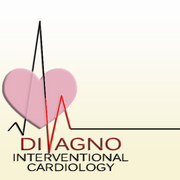
Heart attack symptoms occur when the blood supply to the heart is blocked, and they typically require emergency care. Fortunately, by learning about the symptoms, causes, and risk factors, you can help prevent attacks from happening. Here’s what you need to know.
What Are the Main Heart Attack Symptoms?
One of the most common symptoms is discomfort or pain on the left-side or center of the chest. It’ll typically last for more than a few minutes and may go away and then come back. You’ll also notice squeezing, fullness, or uncomfortable pressure.
 Additionally, lightheadedness, shortness of breath, and fainting are common, as is pain in the jaw, back, neck, shoulders, or arms. Women often experience vomiting, nausea, or unexplained fatigue.
Additionally, lightheadedness, shortness of breath, and fainting are common, as is pain in the jaw, back, neck, shoulders, or arms. Women often experience vomiting, nausea, or unexplained fatigue.
What Are the Causes?
Heart attacks are typically a result of coronary heart disease. This condition causes the coronary arteries to be clogged with fatty plaques. However, the obstructive plaque is not what causes the attack; it’s the blood clot that forms on top of the plaque, leading to narrowed blood vessels and the blood flow being cut off.
What Are the Risk Factors?
The major risk factors are well-known, and many can be controlled. Some examples include smoking, a sedentary lifestyle, high cholesterol, high blood pressure, obesity, and diabetes. Additionally, stress, anxiety, excitement, or over-exertion can also trigger a heart attack.
If there’s a history of heart disease in your family, that will also increase the risk. Men who are over 50 that have a family history of heart disease are particularly vulnerable. Premenopausal women have high levels of estrogen, protecting them against attacks. However, the risk increases after menopause.
Finally, there are risk factors that are specific to women, including gestational diabetes, preeclampsia, inflammatory diseases, and autoimmune diseases.
If you’ve had heart attack symptoms or are concerned about heart disease, the team at DiVagno Interventional Cardiology, MD, PA will help with detection, prevention, and treatment. Serving Bergen County, NJ, the practice provides the best standard of care, and they use state-of-the-art technologies. Call (201) 845-3535 to schedule an appointment, or visit the website to learn more about their services.
About the Business


